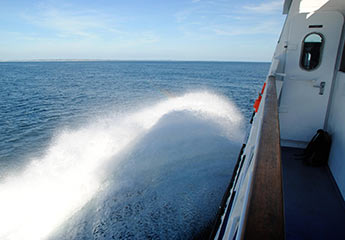Power-to-X technology enables the production of sustainable fuels and has the potential to replace fossil fuels in the shipping industry. The introduction of renewable power to energy-consuming sectors as shipping, will significantly support the goal of a 70 percent reduction of the CO2 print in 2030 and to accomplish climate neutrality by 2050. 30 percent of the total CO2 that a ship emits in its lifetime occur during the construction of the ship. This is a significant factor, which must not be neglected in the green transitioning of society. Therefore, this project will investigate whether there are environmental cost savings in the retrofitting of existing diesel driven ships and integrating new engines driven by methanol, instead of new construction.
Project partners are Rederiet Læsøfærgen, OSK-ShipTech, Emenergi, Advent Technologies, Nordhavn Power Solutions, Hydrogen Valley, AAU Energy and the Danish Institute of Fire and Security Technology.
The advancement of Power-to-X technology provides the opportunity to replace fossil fuels with green fuels. Methanol extracted by such technology does not emit CO2 or particles, however, it differentiates from diesel in different aspects. This necessitates the development of new procedures for managing, storing, and bunkering methanol fuels safely.
DBI will provide holistic recommendations based on technical and human factors that influence safety and fire safety. The contributions include analyzing elements concerning fire safety and precautionary measures related to methanol, reviewing existing fire escape plans, mapping existing rules and legal requirements, as well as identifying future fire safety challenges associated with methanol – with a consistent focus on the interplay between humans and technology.
The project “Methanol for Læsø Rederi” was initiated in January 2022 and ends in December 2022.

